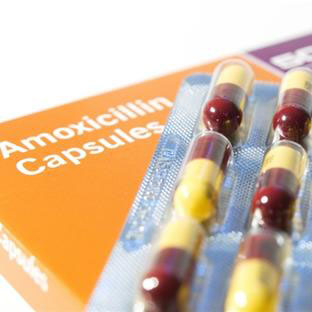RCGP calls for antibiotic prescribing targets to stave off ‘deadly’ resistance

The RCGP has said national targets are needed to reduce antibiotic prescribing or else ‘simple infection and routine surgery’ could become ‘deadly’, in a joint call with other medical colleges.
In a summit being held in London today, the RCGP, the Royal College of Nursing, the Royal College of Physicians and the Royal Pharmaceutical Society say antibiotic prescribing has to be reduced down to 2010 levels in both community and hospital settings to ‘halt the relentless rise in antibiotic resistance’, following a 6% increase in prescribing rates between 2010 and 2013.
Announcing the call, healthcare leaders said ‘binding’ national targets had to be implemented ‘without delay’ or routine operations could soon become deadly.
The statement said: ‘GPs, hospital doctors, nurses and pharmacists are calling for binding national “rollback” targets on antibiotic prescribing to halt the relentless rise in antibiotic resistance.
‘The impact of antibiotic resistance has been compared to climate change in terms of its impact on human health. Healthcare without effective antibiotics is unthinkable to those who have enjoyed the benefits of modern medicine. The stark reality of a world where simple infection and routine surgery become deadly is ahead unless we take action now.
‘Leading experts from across the professional spectrum are calling for national measures to be implemented across the NHS without delay.’
Related stories
GP antibiotic prescribing under the microscope
Health chiefs considering putting antibiotic prescribing targets into GP contract
RCGP honorary secretary Professor Nigel Mathers said doctors have ‘developed a worrying reliance’ on antibiotics and some patients now ‘see them as a cure-all’.
To halt the trend he said it was ‘absolutely imperative’ that doctors, nurses and pharmacists explain to patients when antibiotics are not required.
He said: ‘Health professionals can face enormous pressure to prescribe them but all of our patients and the public need to be aware of the risks associated with inappropriate use of antibiotics and how to use them appropriately.
‘It is absolutely imperative that all of us – doctors, nurses and pharmacists – work in partnership with our patients to talk about when antibiotics are necessary and when they are not required. We should also be pointing out the alternatives available to those of our patients who ask for antibiotics to treat viral illnesses.
‘We need to do everything we can to prevent resistance to antibiotics so that we can all benefit when we really need them.’
The news comes as Pulse revealed last month that public health officials are in talks with NHS England about the possibility of introducing targets to cut antibiotic prescribing into the GP contract and publishing individual GP antibiotic prescribing rates,
A recent Public Health England report pointed towards a 40% increase in prescribing of antibiotics for coughs and colds from 1999 to 2011 – although GP prescribing fell last year – whilesurveys reveal that nine out of 10 GPs feel under pressure to prescribe the drugs.
Visit Pulse Reference for details on 140 symptoms, including easily searchable symptoms and categories, offering you a free platform to check symptoms and receive potential diagnoses during consultations.











